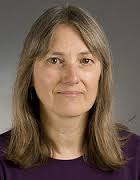
Fine Needle Aspiration and Small Biopsy of Pediatric Round Cell Tumors
Lisa Teot, MD |
The diagnosis of pediatric round cell tumors by FNA and small tissue biopsies can be challenging, due to significant morphologic overlap between these entities. The differential diagnosis includes tumors arising in a variety of tissues and organs; the age of the patient and location of the tumor can help narrow the differential diagnosis and guide triaging and choice of ancillary studies. Many of these tumors have recurrent genetic abnormalities, which help to confirm the diagnosis. Importantly, the requirements of treatment protocols and associated biologic studies can limit the use of FNA as a primary diagnostic tool in this population.
Target Audience
This educational activity is designed for pathologists, cytopathologists, cytotechnologists, students and other members of the cytopathology community.
Learning Objectives
- Describe the cytologic features and histologic correlates of common and uncommon round cell tumors that occur in children and list differential diagnostic considerations for these entities
- Describe appropriate ancillary studies to enhance the diagnosis of pediatric round cell tumors in cytologic specimens and small biopsies
- Discuss the limitations of and pitfalls in the diagnosis of pediatric round cell tumors in cytologic specimens and small biopsies
Presenter(s):
Lisa A. Teot, MD
DISCLOSURE OF RELEVANT FINANCIAL RELATIONSHIPS
The faculty, committee members, Executive Board and staff who are in position to control the content of this activity are required to disclose to the ASC and to learners any financial relationships that have occurred within the last 24 months with ineligible companies whose primary business is producing, marketing, selling, re-selling, or distributing healthcare products used by or on patients. The ASC has reviewed the disclosures and mitigated all relevant financial relationships.
The following individuals have reported financial relationships:
Oscar Lin MD PhD: Consultant – Hologic and Jansen
Liron Pantanowitz MD: Consultant – Hamamatsu, Advisory Board for Ibex
Martha B Pitman MD FIAC: Consultant – Adenocyte, LLC
Donna K. Russell MEd CT(ASCP) HT(ASCP): Advisory Board – Hologic Scientific
Christopher J. VandenBussche MD PhD: Ad hoc advisory board panel and Consultant – Roche
The following individuals have reported no relevant financial relationships:
Susan A. Alperstein, MS, CT(ASCP), Donna Armyalagos, BA, CT(ASCP), Cheryl K. Arnott, SCT(ASCP), Kristen A. Atkins, MD, Khalid Amin, MD, Guliz A. Barkan, MD, Christine N. Booth, MD, Barbara A. Centeno, MD, Bonnie Choy, MD, Deborah J. Chute, MD, Amy C. Clayton, MD, Jacqueline M. Cuda, BS, SCT(ASCP), Kara L. Hansing, MEd, SCT(ASCP)CM, Elizabeth M. Jacobi, MD, Jennifer B. Kernodle-Zimmer, BS, SCT(ASCP), Sara E. Monaco, MD, Caleigh-Shea Murphy, Gabriela M. Oprea-Ilies, MD, Maria Luisa C. Policarpio-Nicolas, MD, Sinchita Roy-Chowdhuri, MD, PhD, Momin T. Siddiqui, MD, FIAC, Jose Victor Scarpa Carniello, MD, Sheila Segura, MD, Paul N. Staats, MD
The ASC staff associated with the development of content for this activity reported no relevant financial relationships.
Presenters:
The presenter has no conflicts of interest or financial relationships to disclose.
Continuing Medical Education (CME) Statement
The American Society of Cytopathology is accredited by the Accreditation Council for Continuing Medical Education to provide continuing medical education for physicians. The American Society of Cytopathology designates this enduring educational activity for a maximum of 2.0 AMA PRA Category 1 Credits™. Physicians should only claim credit commensurate with the extent of their participation in the activity.
American Board of Pathology Continuing Certification (CC)
This product can help fulfill the CME requirements mandated by the American Board of Pathology Continuing Certification (CC) process. Earn up to 2.0 Credit Hours.
Continuing Medical Laboratory Education (CMLE)
The ASC designates this activity for a maximum of 2.0 Continuing Medical Laboratory Education (CMLE) credit hours for non-physicians. The CMLE credit hours meet the continuing education requirements for the ASCP Board of Registry Certification Maintenance Program. Participants should claim only the credit commensurate with the extent of their participation in the activity.
Cytotechnologists with Licenses in Florida and California
This program is approved for 2 continuing education credits in the State of Florida and 1 in the State of California. The credit on each link is good for three years from the live presentation date.
Available Credit
- 2.00 AMA PRA Category 1 Credit™
- 1.00 California Credits
- 2.00 CMLE
- 2.00 Florida Credits
- 2.00 Participant

 Facebook
Facebook X
X LinkedIn
LinkedIn Forward
Forward